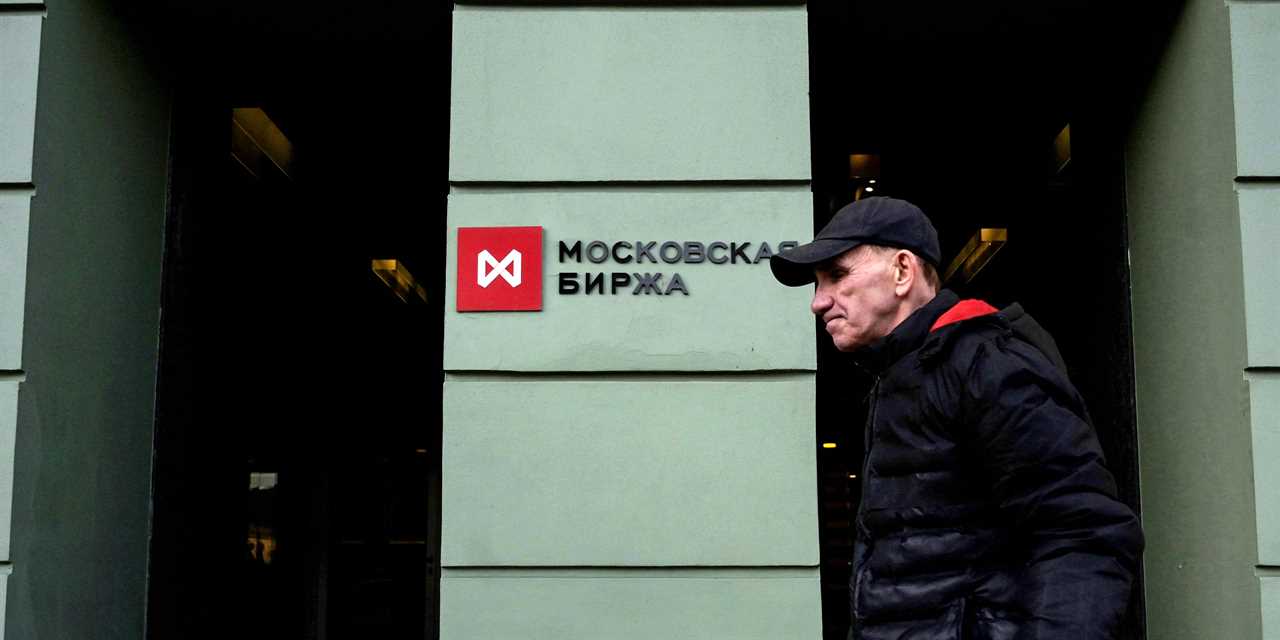
Trading in Russian stocks has calmed, but all isn't as it seems.NATALIA KOLESNIKOVA/AFP via Getty Images
-
Russian markets seem to be experiencing a strange calm. However, you will find that almost everything has changed beneath the surface.
-
Moscow's stock exchange is being held together by the government, which is essentially preventing foreign investors from entering.
-
Iskander Lutsko of Moscow broker ITI Capital tells Insider about what's happening in the "completely artificial markets" right now.
A strange calm seems to have settled on the country's financial market almost two months after Russia invaded Ukraine.
Russia's ruble is now fully recovered after its dramatic crash in days following the attack. Although Russia's stock market remains in negative territory for the entire year, the dramatic sell-offs of February are over.
But if you look beneath the surface, you will see that the Russian state is a strong force holding the markets together. The government has imposed capital controls to boost the ruble and banned foreign investors from dumping domestic assets.
Iskander Lutsko, chief investment strategist at ITI Capital is a major Russian financial broker. For 15 years, he has worked in the financial markets, including at Sberbank (Russia's largest lender). Insider spoke with him this week to find out what is really happening in Russia's "completely synthetic" markets.
Stocks aren't reflective of the 'unfortunate truth'
Moscow's Moex stock market index has fallen roughly 40% this year, but has increased by around 9% since its bottom in February.
Lutsko believes it should be significantly lower. He stated that the Russian equity market does not reflect the sad, real reality. "It is because non-residents can't sell."
About 80% of the Moscow stock exchange's tradable stocks was owned by foreigners in 2021. This is worth approximately $200 billion.
Lutsko stated that at least $50 billion equity exposure remains on funds' balances. "Mostly US funds dedicated to European funds."
Moscow's recent decision to instruct Russian companies to cancel any foreign share listings could lead to a flood of selling once the so-called depositary receipts have been repatriated, he stated.
He stated that there are at least 900 Billion Rubles (or $11 Billion) worth of Russian stocks abroad depositary receipts that local investors could sell on Moex.
The lack of foreign players on the market has made it difficult to sell and buy assets. According to the Moscow broker, retail investors now dominate trading. They have "little understanding and no idea how to play market,"
Vultures are playing
The situation on the bond market is worse. After US sanctions blocked their access to global financial systems, Russia's government is in danger of defaulting on its foreign debts. Many of Russia's largest companies are also at risk of default. Gazprom is one of the largest companies that has seen its bonds plunge.
Lutsko stated that bargain hunters have been attracted to the Ukraine crisis by the collapse in prices. They hope to make a profit on a rebound. These investors, which Lutsko avoids using the term, are often called "vultures".
He said, "I know that many medium-sized hedge funds and even many local brokerages are looking for opportunities in Russian eurobonds."
Guernsey, an ITI entity, has been helping facilitate these trades by buying bonds at 20-30% off their face value. Lutsko stated that there has been "a tremendous interest."
The ruble' is "completely artificial"
Analysts wondered if Western sanctions were having the desired effects due to the rapid rebound of the Russian ruble.
Lutsko stated that it is not an indicator of the strength and resilience of the economy. The government has tightened capital controls to prevent rubles from leaving the country and instructed exporters convert 80% of their foreign earnings in currency.
He said that the ruble was in an artificial environment. The central bank regulates volatility to ensure it remains low. "We have some dissonance or dislocation within the assets."
 Make Money OnlineForexInvestingBitcoinVideosFinancePrivacy PolicyTerms And Conditions
Make Money OnlineForexInvestingBitcoinVideosFinancePrivacy PolicyTerms And Conditions
